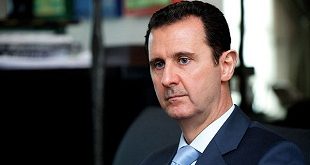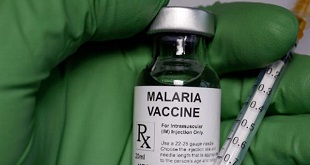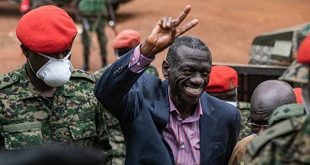
By Steven Kibuuka & Onghwens Kisangala
Uganda Peoples Congress (UPC) held its delegates conference three weeks ago, agreeing to change the party constitution to enable early replacement of current party president Miria Obote after five years instead of seven.
By contrast, the Democratic Party (DP), like Forum for Democratic Change (FDC), postponed theirs to next year. The ruling National Resistance Movement (NRM), smarting from the NSSF-Temangalo that threatened to drive a schism in the party, too plans to hold its delegates conference next year.
This constitution is going to help us get rid of this family of Obote and I can assure you no one from Acholi and Lango is going to lead UPC soon. We are looking for a young person from the central, east or west who can lead the party to another level. This is because these people have created an impression among Ugandans that UPC belongs to northerners,†said a UPC strategist and Member of Parliament who did not want to be named.

But Lira Municipality MP Jimmy Akena (UPC) who is a son of the former party president Milton Obote and current president Miria Obote – is not ruling himself out of the race for party leadership.
Am a young politician and ambitious so if the chance unveils I will offer myself,†said Akena. The constitutional amendments have cut short his mother’s tenure – and possibly the influence of the family on the party. Not surprisingly, Akena was not amused.
“I was not happy with the way some of the amendments were made though I respect the party decision; it seemed as though some amendments were targeting some leaders. We are trying to improve on the institution to meet the current trend of events in our country†Akena told The Independent.
With UPC attempting a makeover, DP gunning for the young and fiery Gulu district chairman Norbert Mao, FDC seemingly content with Col. Kizza Besigye, and NRM saddled with Yoweri Museveni, preparations for the presidential elections, still two years away (in 2011), is catching momentum.

The question for many Ugandans though is, will the current positioning and jostling within the political parties bring change, both in the faces and the issues or will Ugandans once again have to choose from the same old menu?
Certainly, Miria Obote’s early departure – since she is ineligible to contest due to advanced age – will set the stage for a new face in UPC, perhaps exorcising the party of Obote’s ghost that has brought it much love and hate in disproportionate measures.
The question, of course, is who can UPC field. Several names have been bandied around in the past, among them Darlington Sakwa from Mbale, Joseph Ochieno from Tororo, Patrick Mwondha from Busoga (Bugiri) and lately Jimmy Akena from Lango. The party seems to have died out in Buganda and in the west, making it difficult for the party to shed off its northern/eastern image.
But even within its limited choice, the party will be hard-pressed to deliver a make-over that can win elections. Mwondha belongs to the old generation although he was the youngest minister in the Obote II regime. The other three while belonging to the younger generation do not seem to have a national constituency. But if the party is looking at the long-term, rather than 2011, then any of these choices could do.
As for DP, the jostling perhaps is going to be quite fierce. Already, three, if not four, people are emerging as possible flag bearers of the party. There is Nobert Mao, Buikwe MP Lulume Bayiga, Kampala Central MP Erias Lukwago and Kampala mayor Nasser Sebaggala who declared his candidacy last week.

The latter three come from the party’s backyard of Buganda while the former comes from Acholi region, once the bastion of the party. Currently the dice favours Mao as the party too attempts to break the image of it being a Buganda party. “We are pushing for Mao as away of ending that notion among the people that DP is for Baganda and Catholics as that, with him we think we shall give the party a new face,†said Busiro South MP Joseph Balikudembe.
Very charismatic and given to great oratory, Mao is already doing his groundwork, projecting himself as different from the typical opposition politicians Ugandans have been accustomed to seeing.
“I want to be a real alternative to DP and the whole opposition so that we stop seeing things like weekly press conferences where the opposition comments on Museveni’s policies. We need to offer Ugandans alternatives. I strongly believe this is the best time for the opposition to take power because Museveni has failed NRM terribly of late than before and we need to capitalize on that,†Mao told The Independent.
Yet while he may capture the DP leadership, the question remains whether he can lead a national challenge of the opposition against a tired Museveni?
Perhaps to answer that, Mao has embarked on meet-the-people-tours in which he is visiting DP grassroots and courting support for his party presidency. “I was in Iganga, Mbarara, and Kumi soon am going to camp in Buganda,†said Mao. In the process, he hopes to build a national network which should help him gun for Museveni’s job.Â

FDC on the other hand has postponed its delegates’ conference till next year. “Because of logistical problems, we have pushed our delegates’ conference forward until such a time when we have mobilized the necessary resources. We want to allow people to prepare for Christmas well and go and have a good time with their families. It is the first agenda we are going to have in the New Year,†said party vice-president Salaam Musumba. And, according to Musumba,
FDC is not worried about DP and UPC’s move towards a generational change in leadership.
“We are not worried about DP or any other party, our focus is on NRM and its failures. We will evaluate the situation as it unfolds but you know that we are in a co-operation which we are going to participate in as a strong party,†she said, adding that the possibility of Chairman Mao leading DP into the election can not be a problem either. “We contest for elections countrywide. Remember that Mao won the chairmanship with FDC support. And a senior DP stalwart Zachariah Olum failed in the face of an FDC-man challenge. But you also know how strongly rooted we are cross the country.â€
While FDC may not worry about other parties – yet, there could be some internal worries to think about, top of which is whether it is a good idea for party leader Besigye to take a third shot at the presidency, and whether leader of the opposition in Parliament Ogenga Latigo should be replaced.
There is also the question of what role to assign people like former NRM minister Richard Kaijuka and former secretary general of the East African Community Amanya Mushega who have made overtures towards the party but seem unprepared to take less than the party leadership. And just like in other parties, whether it is time to get another flag-bearer who is not from western Uganda and if so, who?

According to party sources, FDC members who do not want Besigye to take a third plunge prefer that the party fields someone from the east or Buganda. In the east, names such as party spokesperson Wafula Oguttu, vice president Salaam Musumba and shadow finance minister Nandala Mafabi, among others have been mentioned. As for Buganda, there seems to be no luminary since the death of Sulaiman Kiggundu who would have been the natural choice. The behavior of Rubaga North MP Betty Kamya has only made the choice more difficult.
Whichever way the parties shape out next year, it is clear that come 2011, the opposition will still face President Museveni who is currently at his weakest level politically. Should parties field a younger team with one opposition candidate, then we could easily have an Obama-McCain situation here. And with the large population of young voters born just before or after Museveni’s take over in 1986 but who are increasingly frustrated by the narrowing opportunities, corruption, theft, sectarianism and the break down of law and order, the political landscape in the next two years may turn out to be the most dramatic, and the most brutal.
The regime will become more brutal as a result of erosion of support which brutality will only lead to further erosion of support,†said A Makerere University Law lecturer and political analyst Prof. John Jean Barya, adding, “I therefore do not expect President Museveni to get more than 50% of the vote come 2011. But because they are going to see this, they may change the constitution that requires a presidential candidate to get 50+% such that the person with the biggest vote wins out rightly whether with 50-plus-percent or not.â€Â But again, we could be wrong.
 The Independent Uganda: You get the Truth we Pay the Price
The Independent Uganda: You get the Truth we Pay the Price


